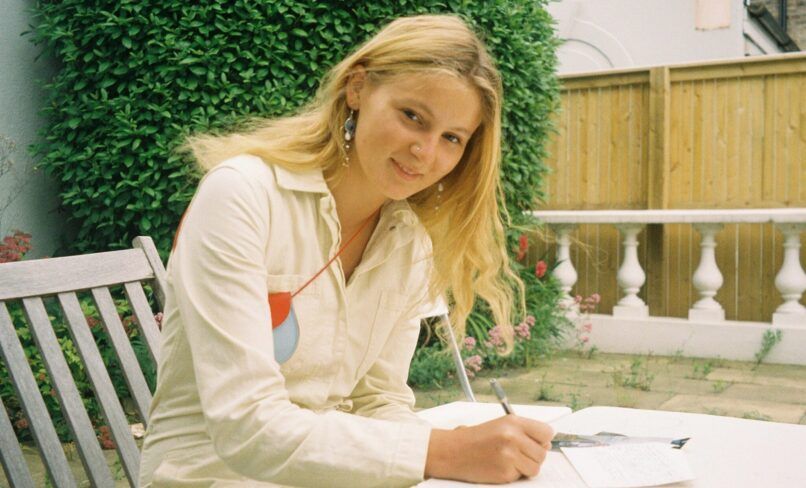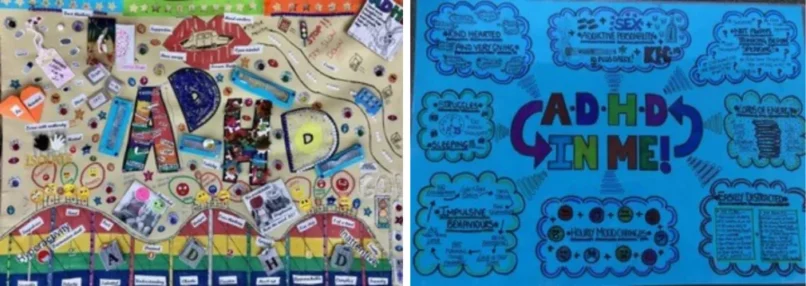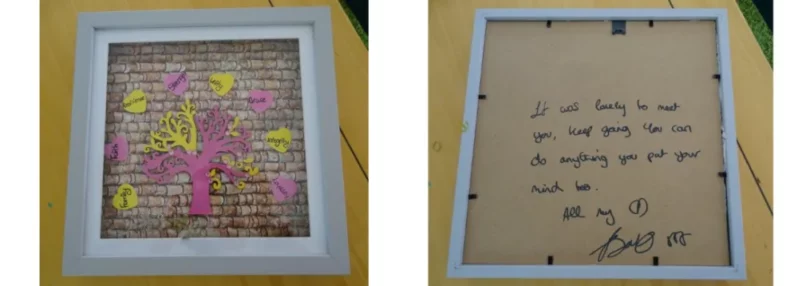“An estimated 25% of prisoners have ADHD. This is a five to tenfold prevalence increase compared to general population rates, however ADHD remains critically underdiagnosed in prisons.” – ADHD Foundation
Research suggests that one in four prisoners in Britain are believed to have attention deficit hyperactivity disorder. Evidence shows that ADHD is linked to an increase in early age criminality and an increased likelihood of re-offending. Yet, if ADHD is recognised in prisons and managed appropriately, there can be a reduction in criminality of 32% for men, and 41% for women (ADHD Foundation).
This ADHD Awareness Month, Unlocked Graduates are taking a look at how participants are harnessing their own experiences of ADHD to empower those in our criminal justice system to manage theirs.
We spoke with Unlocked participant Sophie (2022 Cohort) about how she supports the women in her care to adopt positive coping strategies:

“I quickly realised upon coming into the prison that ADHD was a key issue for many prisoners. Many felt like they weren’t responsible for their actions due to having ADHD. Officers can then feel demotivated by the fact that prisoners aren’t taking responsibility for their actions. On the flipside, prisoners feel misunderstood because the officers aren’t listening to them due to misunderstandings around the condition.
But because I have ADHD, I can understand and sympathise with why they have difficulties with emotional dysregulation, hyperactivity and the prison environment in general. I wanted to set up a project for prisoners to better understand their ADHD, because it can be really validating and help you act out less with ADHD symptoms.”
My first project was all about education around ADHD, so that instead of saying ‘it’s not me, it’s my ADHD,’ they could begin to say ‘maybe this is why I act like this and I need support to try and manage some of these symptoms.’
With the help of ADHD UK, Sophie created and ran the first ADHD-focused course in her prison. ‘ADHD & Me’ was held during ADHD Awareness Week and included a creative poster competition, plus a quiz to help individuals better identify their specific needs. She hopes the course will act as a pilot template for other prisons nationwide.

“The poster competition was a massive success. I feel really strongly about having a creative outlet, whether through art, poetry, writing etc. as a form of escapism.”
Sophie put her ideas forward for an Unlocked Innovation Acceleration Project, boosting the impact of ‘ADHD & Me’:
“I was able to apply for funding for notebooks, fidget toys and arts supplies to use both in class and in their cells.
I was actually really emotional looking at the ADHD & Me posters because they’d spent a whole month putting them together. They’d really made use of the resources, they were incredible. Two of them are going to go forwards for the Koestler Awards.
Growing her network further, Sophie reached out to Anna Stephenson Knight and her creative arts project ‘Bird Creations’. Together they designed a new event tailored for neurodiverse mothers and mothers of neurodiverse children:
“Prisoners made friendship bracelets and affiliation boxes for their children, and we would talk about ADHD whilst they were in the creative process. Because they were able to get creative, we were able to keep talking about neurodiversity and they were so much more engaged.”
Sophie forged a link between ADHD UK and HMPPS, meaning that the ADHD UK team were able enter the establishment and run the first ADHD-focused course of its kind in a UK prison. They were joined by celebrity guest Tanya Bardsley:

“The third project was all about creativity whilst learning together. The prisoners were all so excited about Tanya being there felt really validated by the fact that Tanya was so open about struggles with her own mental health due to ADHD. We also talked about how trauma increases ADHD symptoms.
We then did all the creative projects again whilst talking to Tanya about ADHD. The whole day was filled with education but combined together with creativity to create the calmest possible environment that still allowed for lots of learning.”
I saw very evident differences between them from the beginning of the day compared to the end of the day. It’s been amazing to go on this journey with them, and I have learnt a lot too through the process.
“It hasn’t been easy, and I encountered a lot of obstacles. But my Deputy Governor has always been supportive and really understood the importance of my project going ahead.”
“It has been a huge learning process. I had never even set up a classroom before, so teaching a whole class of adults trying to manage their ADHD was really overwhelming! It was probably one of the hardest things I’ve ever done, so I’m really proud of myself for this project.”
Sophie has high hopes of supporting the link between ADHD UK and the prison system to foster more opportunities supporting those with ADHD in the UK criminal justice system. She is focusing her Master’s research project on ADHD in prisons, and has already sent her ADHD & Me pilot to other Unlocked participants so that they can carry out similar awareness training in their establishments across England and Wales.